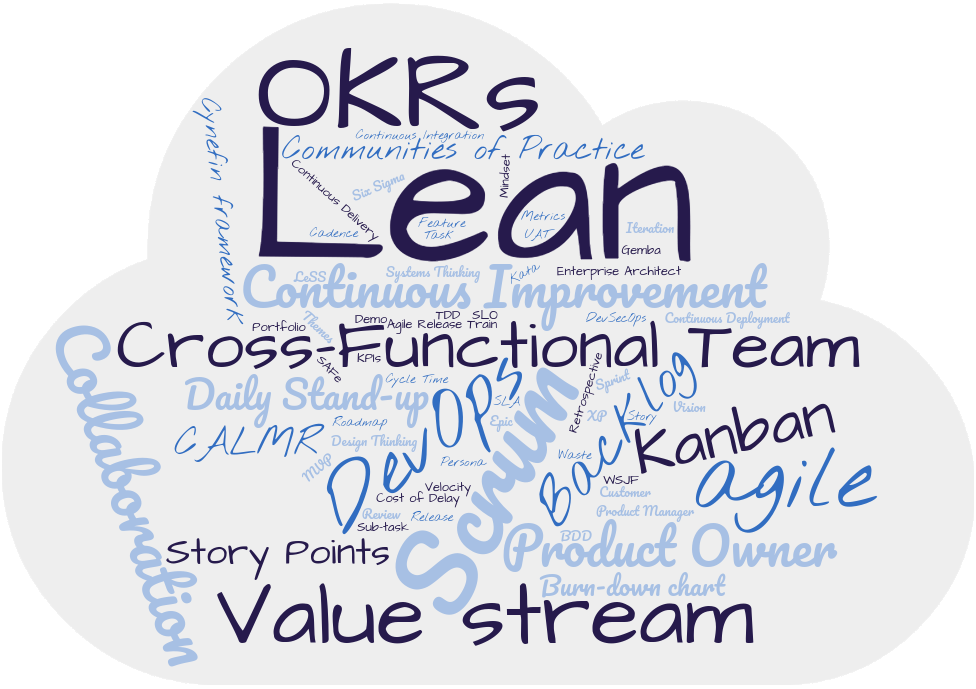You keep using that word
Agile transformation #
How we made all the mistakes so you don’t have to #
Part 4 #
With all our frameworks, vocabularies, acronyms, and in-house names how do we make sure everyone understands what we are talking about?

So, after our daily scrum we went to the gemba and then I could discuss the MVP blockers with our PO.
Does everyone know what your new (and old) words mean? Do you know what they mean? In one workplace we soon discovered that we had four different definitions of what a Product Owner was and what was expected of the role.
Not having a common vocabulary made it difficult when we needed to discuss at a portfolio or company level, as we sometimes meant different things with the same words. It was even worse for people coming into a Product Owner role with certain expectations that may or may not be relevant depending on where in the business they ended up. Recruting externally could lead to setbacks if an experienced PO accepted a PO position only to find that it was nothing like their previous experience.
Once we agreed on a common framework, one big benefit was that we could refer back to the definitions in the framework when discussing different issues. Aligning our definitions ensured that we had a common language. It’s easy to get stuck on buzzwords or the latest hot acronym.
Why is this important? Because it can lead to unnecessary misunderstandings or expectations.
The greatest problem with communication is the illusion that it has been accomplished.
– George Bernard Shaw
Or was it William H. Whyte who said that? Not even that is clear! https://quoteinvestigator.com/2014/08/31/illusion/
In any conversation, it’s much easier if what we’re saying is clear to everyone, so there’s no misunderstanding. Best case, a misunderstanding leads to a laugh later on, worst case we have spent a lot of time on something that we have to redo. We think we are aligned but we’re really not.
Sometimes words and their meanings are important. For example, in my work I spend a lot of time talking about the differences between output and outcome, because to me they’re very different things, but to some people they’re the same thing.
I have had the benefit of working with an editor on some of my writing, and what an improvement that has been in putting my intentions into the best possible words. Especially as English is my second language. Compared to this blog, which is just my own words. And a little help from DeepL
In other situations, I have to be careful about the words I use as they may trigger the audience. Some teams and especially managers have been triggered by the word agile. As soon as that came out of my mouth, there were a lot of objections “Ah, no, that wouldn’t work here. We’re not Spotify, you know”. Or “We can’t do Scrum, we’re in Operations”. In those circumstances, I would talk more about improvements and removing obstacles, maybe if we adjusted our plans more often, that would help us get feedback sooner? Yes, much better than this agile crap.